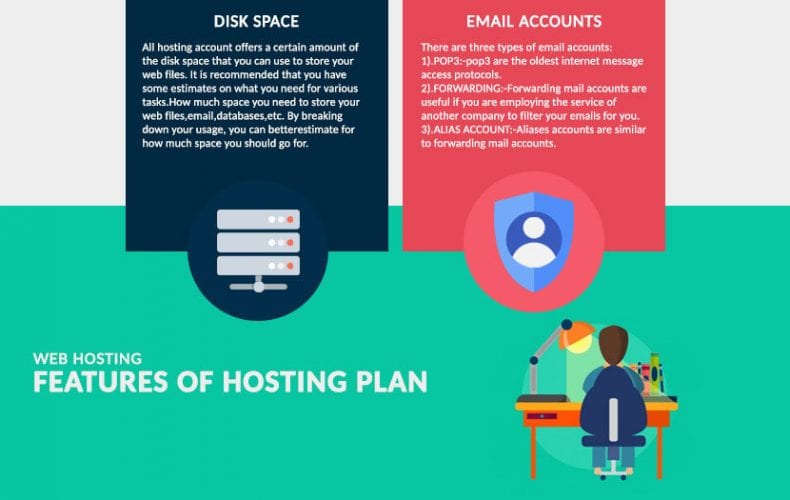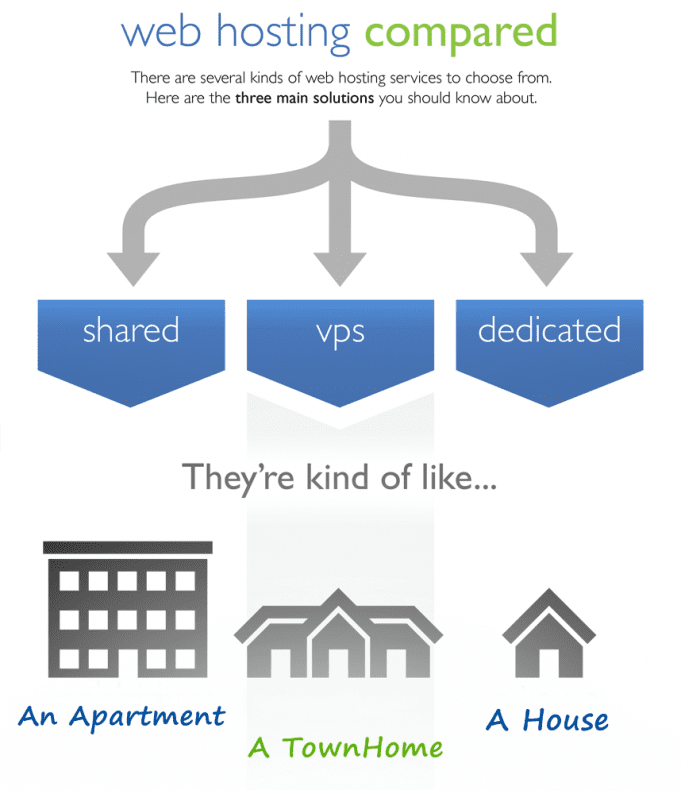– Website hosting is a service that allows organizations to post a website on the Internet. A web host or a web hosting service provider is a business that provides the essential technology needed for the website to work and to be viewed on the Internet. Websites are stored on special computers that are called servers.

– When you search for a website, all you have to do is type the website address into the browser. Your computer will then connect to a server, and the websites will be shown on the browser.
– Hosting companies usually require that you own a domain name in order to host with them. If you do not have a domain name, the companies will help you buy one. There are some basic highlights that a web hosting plan usually includes:
- Disk space

– All hosting companies offer a specific amount of disk space that you can use to store your web files. You need to have an estimate on what you need for a wide variety of tasks – the amount of space need for your emails, web files, databases, etc. By knowing how much you will need to use, you will have a better assessment of how much space you will need from the company.
- Bandwidth or data transfer?

– You can hear people saying that bandwidth and data transfer are the same things, when in fact, they are completely different.
– Bandwidth is the amount of data that can be transferred at one time, while data transfer is the actual amount of data being transferred. If you have less bandwidth, your website will load slower. The less data transfer you have, you will find your website unavailable more often because of the maximum amount of data allowed to be transferred. To determine what is enough for your website to work properly, you need to think about the size of your website and the number of visitors you will have on a monthly basis.
- Email accounts
– One of the common features of web hosting is an email account, especially if you are hosting a domain. There are three main types of emails: POP3, forwarding, and aliases.
– POP3 accounts are the traditional inboxes. You have space to store the emails.
– Forwarding mail accounts is a useful tool if you hired the service of another company to filter your emails. The emails are not being stored on your mail server, but are redirected to another email address.
– Aliases accounts are similar to forwarding mail accounts. This is often used to collect emails sent to addresses not recognized by your mail server.
~ What type of hosting do you need and how to choose it ~

– Nowadays, there are many options in this sector, and you should compare web hosting plans and offers. You can choose free web hosting, shared hosting, dedicated servers, and so on. All of these options have the same purpose, which is hosting your content so that it can be viewed by people on the internet. The major difference is the perks they have.
- Free Web Hosting

– Is there anything better than when something is free? This option is good for someone who wants to create a basic homepage or a very small website. Free Web Hosting is usually looked down on for its lack of security, features, and customer support, but there are free web hosting providers that you can trust. However, if you want a stable website, you will need to consider paying for a hosting service.
- Shared Hosting

– As the name itself states, shared hosting is when you are sharing space on a server with other users. This is a more affordable solution since the cost of the server is shared among clients. But, be aware that by hosting on a shared server, you will be exposed by all the activities from the people you share it with, which can lead to your website crashing more often.
- Dedicated hosting
– When your business starts working well, it is time to choose a dedicated server. Now, you will have an entire service dedicated to your hosting needs and wishes. But, be careful, if you have a dedicated server, but do not know a thing about the server administration, you will not be successful in using it. This kind of web hosting service, is, of course, the most expensive option.

~ Conclusion ~
– The first thing to keep in mind is to know exactly what you need. Free services are great for small sites, shared hosting is good for small businesses, and a dedicated server is designed for larger hosting needs. By knowing what your website needs, it is much easier to choose a web hosting service.









